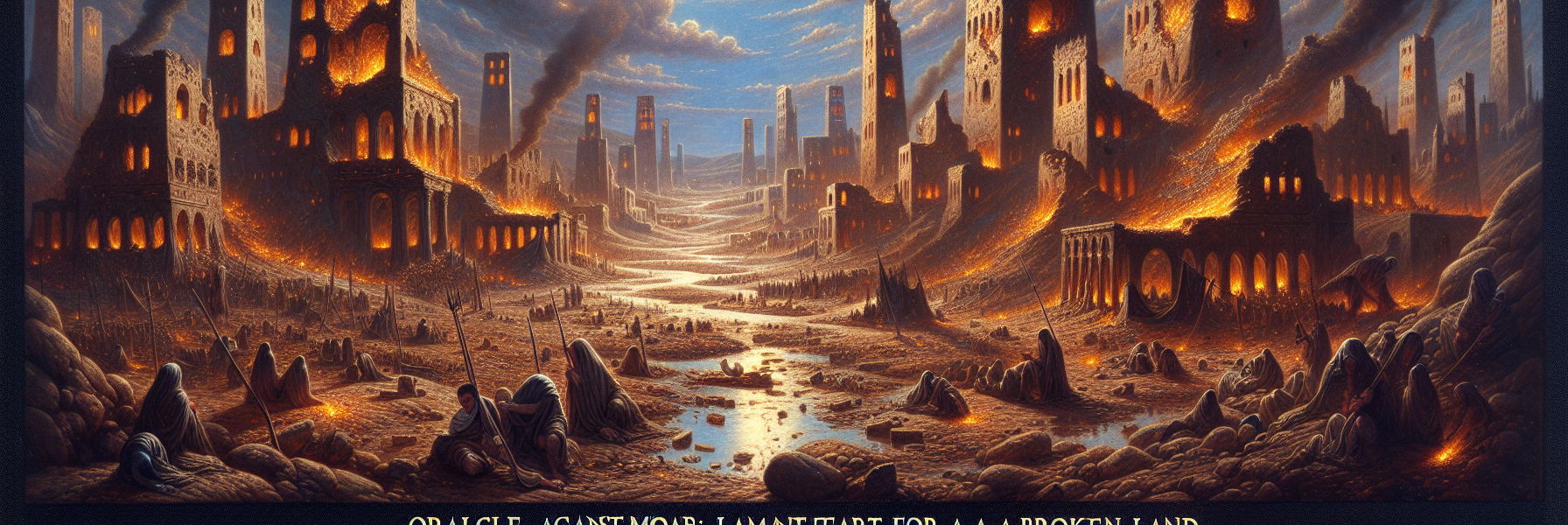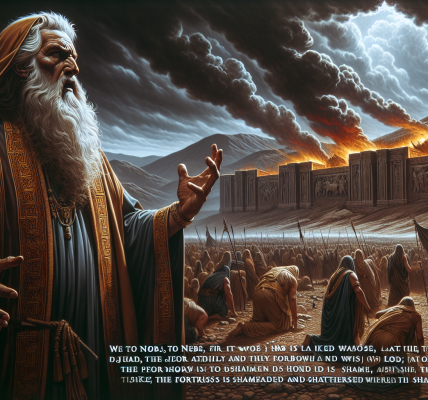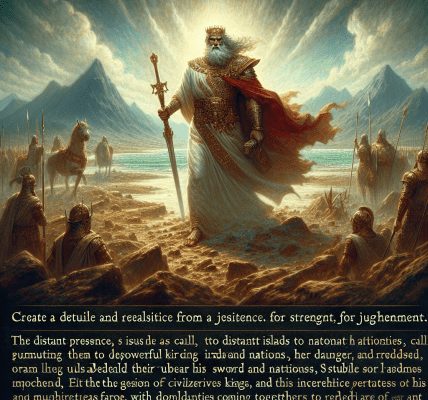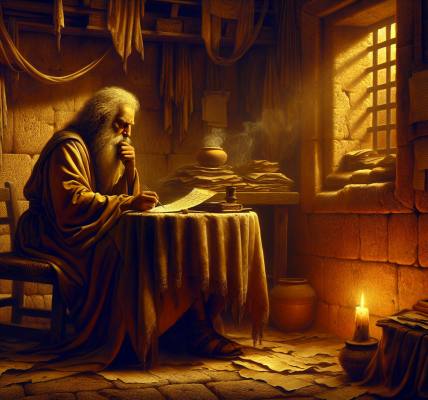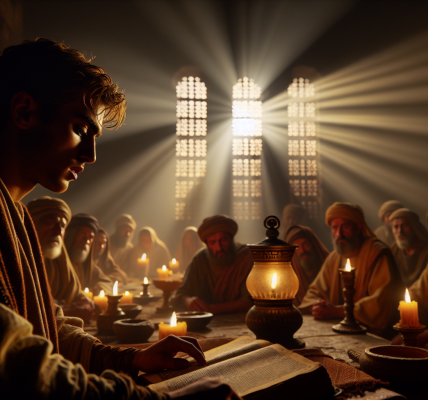**The Oracle Against Moab: A Lament for a Broken Land**
The word of the Lord came to Isaiah, son of Amoz, concerning Moab—a nation once proud and strong, now brought low by the judgment of the Almighty. The prophet’s heart grew heavy as the vision unfolded before him, a scene of devastation and sorrow that would stretch from Ar to Kir, from the high places to the lowest valleys.
### **The Night of Weeping in Ar and Kir**
In the dead of night, the city of Ar, a jewel of Moab, lay in ruins. The once-bustling streets, where merchants had haggled and children had played, were now silent save for the sound of weeping. The invaders had come swiftly, as the Lord had decreed, and the proud towers of Ar crumbled like dried clay.
Not a household was spared grief. Fathers clutched their beards in anguish; mothers wailed over the bodies of their fallen sons. The young men, who had once boasted of their strength, now lay lifeless in the streets, their swords shattered beside them. The women of Moab, their hair torn and their faces streaked with ash, lifted their voices to their gods—but no answer came.
In Kir, the fortress of Moab’s defense, the scene was no different. The soldiers who had trusted in their high walls now fled in terror, their armor discarded in their haste. The enemy’s torches lit the night sky, casting long, flickering shadows over the broken gates. The priests of Chemosh, Moab’s god, poured out libations in vain, for their idols could not save them from the wrath of the Lord.
### **The Flight to Zoar and Eglath-Shelishiyah**
As dawn broke, the survivors stumbled toward Zoar, a city at the edge of the wilderness. They carried what little they could—bundles of grain, waterskins half-empty, children clinging to their robes. Their sandals slapped against the rocky paths, their breath ragged with exhaustion.
At the ascent of Luhith, they paused, looking back at the smoke rising from their homeland. Tears streamed down their faces as they climbed, their legs trembling with each step. The road to Horonaim echoed with cries of despair, for the destruction was complete.
Even the waters of Nimrim, once abundant and life-giving, had become a wasteland. The reeds were withered, the pools dried up. Cattle lowed in thirst, their ribs pressing against their hides. The farmers who had depended on these waters covered their heads in mourning, for the land itself seemed to mourn with them.
### **The Cry of Dibon’s Altars**
In Dibon, where the high places had been filled with sacrifices, the altars were now drenched not with the blood of rams, but with the tears of the people. The warriors of Moab, once feared in battle, trembled like frightened deer. Their hearts melted within them, for they knew that the hand of the Lord was against them.
The prophet’s voice rose in lament, echoing the cries of the Moabites:
*”My heart cries out for Moab; her fugitives flee as far as Zoar, as far as Eglath-Shelishiyah. For the waters of Nimrim are desolate, the grass is withered, the tender herb fails, and nothing green remains.”*
Even the lion, the mightiest of beasts, could not escape the devastation. The Lord had spoken, and the pride of Moab was brought to nothing.
### **The Certainty of the Lord’s Decree**
Yet in the midst of judgment, there was a glimmer of mercy. For the Lord, in His righteousness, does not delight in the death of the wicked, but desires repentance. Though Moab had exalted itself against the God of Israel, though it had trusted in its own strength and false gods, the day would come when even this broken nation might seek the Lord.
But for now, the oracle stood: Moab would weep, her cities would fall, and her people would know that the Lord alone is God.
And so the word of Isaiah echoed across the ages—a warning to all who trust in their own might, a call to turn to the One who holds the nations in His hands. For the day of the Lord is sure, and His justice will not sleep forever.
